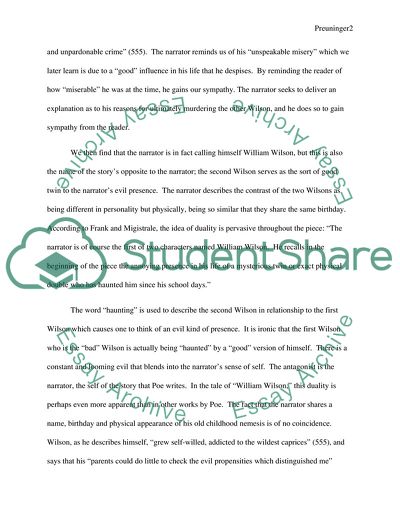Cite this document
(“William Wilson Essay Example | Topics and Well Written Essays - 1750 words”, n.d.)
William Wilson Essay Example | Topics and Well Written Essays - 1750 words. Retrieved from https://studentshare.org/literature/1544819-william-wilson
William Wilson Essay Example | Topics and Well Written Essays - 1750 words. Retrieved from https://studentshare.org/literature/1544819-william-wilson
(William Wilson Essay Example | Topics and Well Written Essays - 1750 Words)
William Wilson Essay Example | Topics and Well Written Essays - 1750 Words. https://studentshare.org/literature/1544819-william-wilson.
William Wilson Essay Example | Topics and Well Written Essays - 1750 Words. https://studentshare.org/literature/1544819-william-wilson.
“William Wilson Essay Example | Topics and Well Written Essays - 1750 Words”, n.d. https://studentshare.org/literature/1544819-william-wilson.


